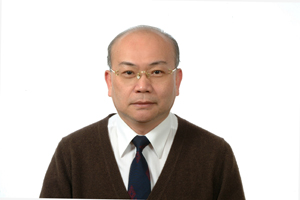PAEB in Taiwan Pedals Hard to Promote Electric Bicycles
2009/10/09 | By Quincy LiangAlready a globally leading production base of high-end bicycles and products, Taiwan is aggressively leveraging its existing advantages in production, high-technology and innovation to build another world-leading sector: electric bicycles.
The rapidly emerging e-bike sector is proving to be a great way for makers to move upmarket, avoiding underselling to build innovative, value-added products. Besides technical upgrading, these makers are also engaged in global marketing to meet rising demand for user-friendly bicycles that easily serve as urban, short-distance transportation tools.
Such effort is backed by Taiwan’s proven track-record, noted by its upgrading to an R&D center of good-quality, technologically advanced e-bikes, no longer a supplier of lower-end bicycles, which are still the staple products made by China, Vietnam etc.
Taiwan is also widely seen as a perfect place to further build its bicycle empire, backed by its integrated, globally-recognized electronics, electro-mechanical, system integration, battery storage technologies on the island.

Sobering Statistics
Some nearly-proven phenomena as global warming, high fuel prices, and explosive urbanization, backed by statistics compiled by the United Nations showing that in 2003 about 48.3% of global population or about three billion people lived in cities, inevitably building demand for greener transportation. Such opportunities are further driven by often reported, extremely high urbanization growths in Mexico, Brazil, India, Argentina, China, Indonesia, etc. Furthermore, MRT systems in many countries seem not be functioning as designed, hence confirming the essential need for personal commuting tools that are both efficient and eco-friendly.
An increasing number of local companies as Giant, Merida, Ideal, Fairly etc., as well as newcomers, have been tapping their expertise to launch newer and better products globally, helping to further enhance its image as a global advocate of green, personal transport.
Taiwan, in 2007, had already achieved 3% of the global production value of bicycles, with such proportion expected to surge, driven by more newcomers entering the segment.
PAEB Founded
To more effectively promote the development of the promising e-bike industry in Taiwan, a group of 12 local companies and the Cycling & Health Center (CHC) set up the Promotion Association of Electric Bicycles (PAEB) in December 2002 (currently with 68 member companies including eight who joined in the first half of 2009 and 20 in 2008), with four major goals:
1. Engage in e-bike R&D, promotion, industry development, design, education etc.
2. Enhance exchange of information and interactions among e-bike makers, companies, associations, organizations etc. in Taiwan and overseas.
3. Organize and host e-bike forums, seminars, test-rides etc.
4. Publish literature related to e-bikes and membership activities.
A senior official of the PAEB points out that increasingly more nations as Taiwan, China, Japan, European Union (EU) nations, India etc. are targeting electric vehicle (EV) as a focus of industrial development.
Encouraging Progress
One notable progress being made is the rapid development of two-wheeled EVs worldwide according to local regulations, economic conditions and consumer habits.
China and India are the top-two markets in which two-wheeled EVs are developing rapidly, while increasingly more consumers in Europe, the U.S., Japan etc. also wish to adopt such green, user-friendly commuting tools. Generally, e-bikes sold in China and India are often lead-acid battery driven for cost-effectiveness, while those in industrially advanced nations use lithium-ion batteries for higher performance. Taiwan has the capacity to win lucrative business opportunities in the latter.
The PAEB official adds that three key factors underlie the successful building of the e-bike sector in Taiwan:
1. Continue to upgrade battery technology to achieve safety, competitive pricing, and avoid sudden battery discharge.
2. Continual official support.
3. Build infrastructure as recharging or battery-swapping stations.

